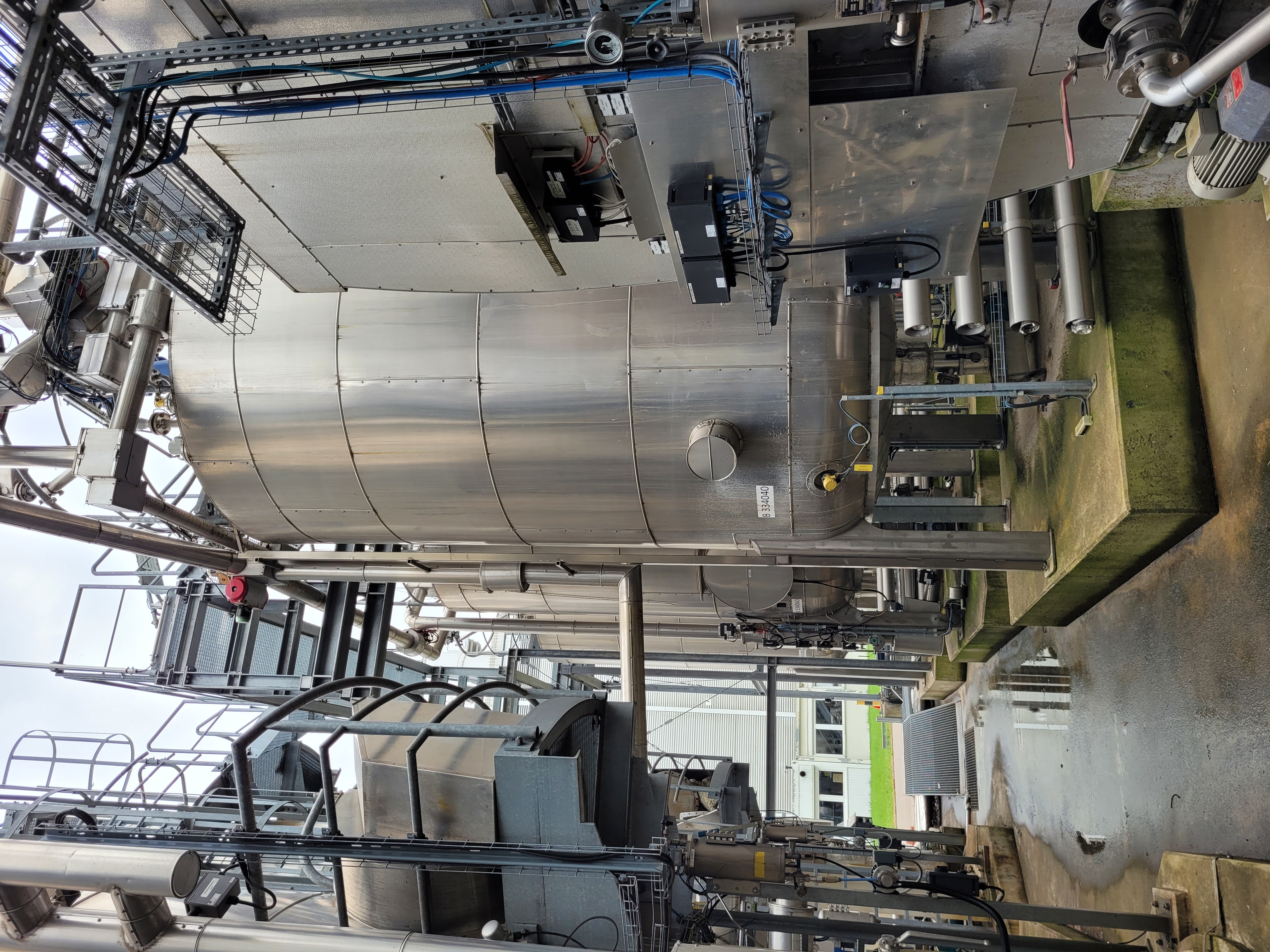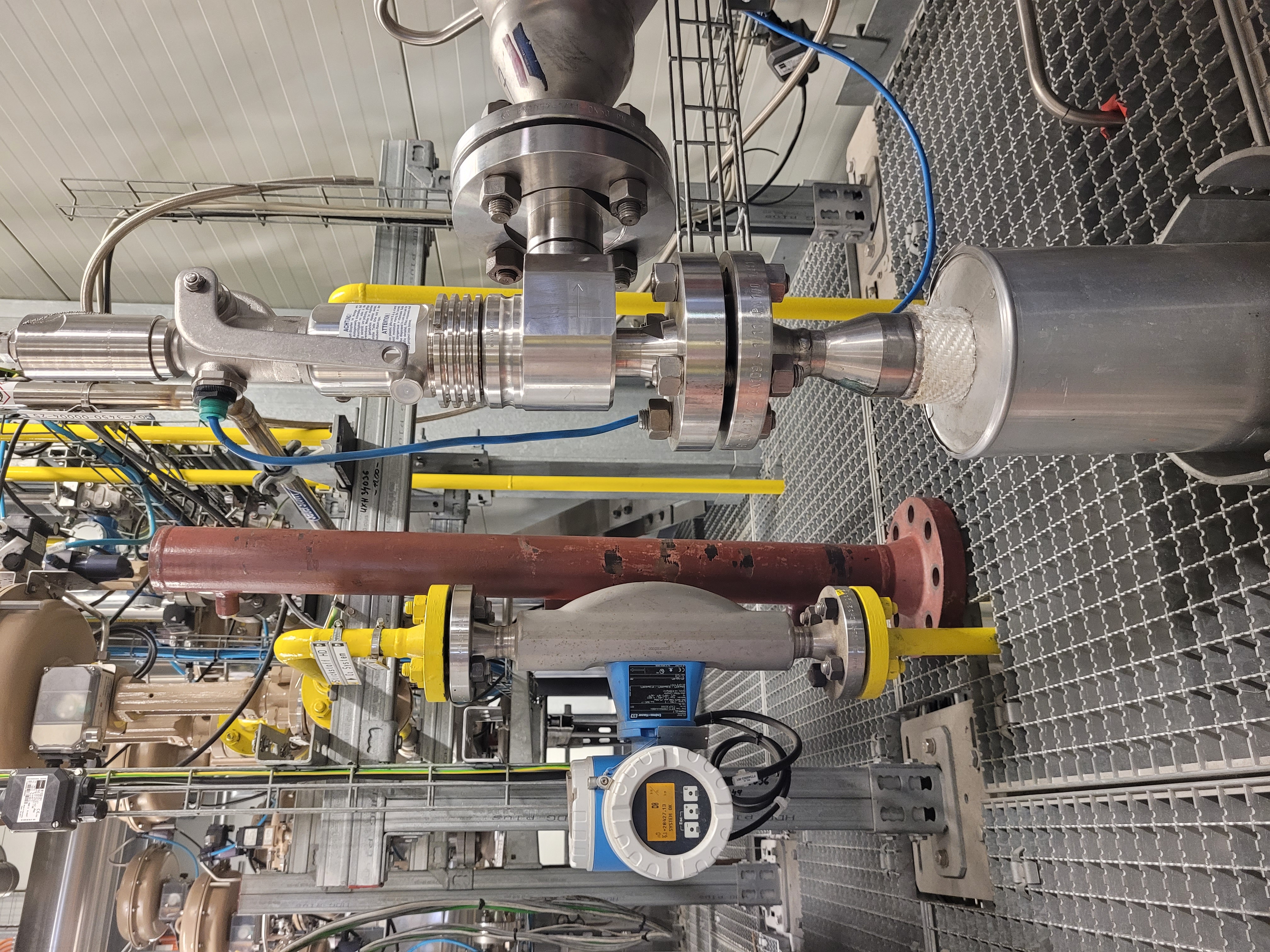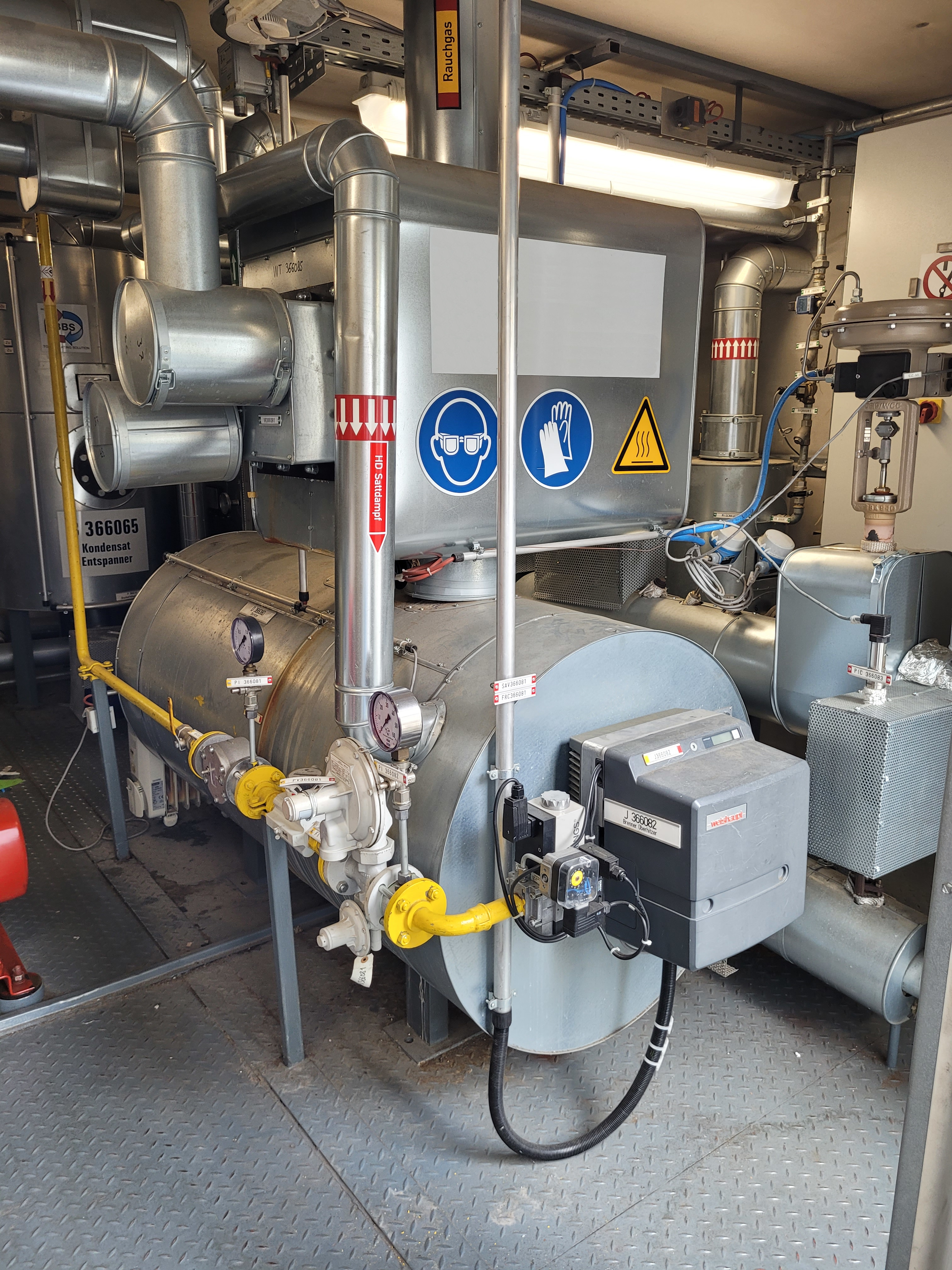Plant safety and infrastructure
In order to minimise risks to people and the environment, the operation of process plants is subject to legal requirements. The most important regulations include the „Ordinance on Industrial Safety and Health“ (BetrSichV) and the „Hazardous Substances Ordinance“ (GefStoffV). Their underpart regulations (e.g. TRBS, TRGS) define the specific safety requirements.
Regular risk assessments are essential for safe plant operation. This is the only way to identify potential hazards at an early stage and derive the necessary safety measures. Typical hazards include temperature, pressure and explosive atmospheres. Other important aspects of safe plant operation include staff training, the safe handling of hazardous substances and the testing of plant components.
The responsibility of the working group extends to all plants operated by the Pilot Plant Operations Department (including BRENDA, bioliq, STYX, fluidized bed/plastic pyrolysis, CCLAB).
The range of tasks is divided into three main areas:
- Plant safety - which focuses on the safe design and operation of plants,
- Occupational safety - which prioritizes the safety of employees,
- Infrastructure - which creates the general conditions for smooth and secure operation.
Plant safety
- Risk assessment analyses (HAZOP or PAAG)

- Pressure equipment safety
- Explosion protection
- Emission / immission control
- Hazardous substances / water-endangering substances
- Laser and radiation protection
- Fire protection
- Gas warning technology
- Periodic inspections / checks
- Coordination of external bodies
- …
Occupational safety
- Risk assessments

- Operating instructions
- Work instructions
- Training / further education
- Safety instructions / briefings
- Work approval system
- Coordination of external companies
- Occupational safety inspections
- Workplace limit value monitoring / non-toxic measurements
- Determination of precautionary measures / accident reports




